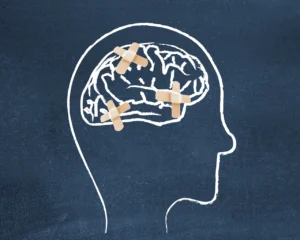What Is Family Systems Therapy?
The foundational belief in family systems therapy is that individual family members are emotionally interconnected. As a result, changes made in one part of the system, or family, affect the whole and vice versa.
This is why family therapy can be effective, for example, in treating mental health conditions of adolescents. While the adolescent may be considered by the family to be the “patient,” healthy changes to family dynamics can help the family as a whole as well as the adolescent.
Therapy.com is user supported. We receive a commission fee from purchases made through BetterHelp links.
Learn More
Exploring the Internal Family Systems Model
Internal family systems (IFS) therapy is a specific form of family therapy developed by Richard Schwartz. While traditional family therapy focuses on dynamics between family members, IFS also considers an individual’s internal system, or psyche, and how it interacts with others’ internal systems.
IFS conceptualizes the internal process as having four different types of parts: the Self, Exiles, Managers, and Firefighters.
The Central Self
IFS posits that everyone has a Self, which is the essence, or core, of the person. The Self is autonomous, confident, secure, competent, relaxed, and able to constructively receive and respond to feedback.
Therefore, the Self can, and ideally is, the one to lead the internal system or psyche. A person may describe feeling centered or at peace when their Self is separate from the other parts, leads their internal system, leads their interactions with others, and exists in harmony with the other parts of themselves.
Exiles
According to IFS, Exiles are parts of the person that isolate them from the rest of the internal system. They do this to protect the person from difficult feelings that may come from trauma, for example.
However, isolation can cause Exiles to become more and more extreme and desperate to tell their story and be cared for. Exiles can, therefore, lead the individual to be vulnerable and fragile.
Managers
Managers are the parts that run the day-to-day life of the person. They work to keep the person in control of situations and relationships to protect their other parts from hurt or rejection. Managers may perform their roles in various ways, like evaluating, controlling, caretaking, intimidating, and striving.
Firefighters
When Exiles are activated, Firefighters try to control or extinguish their pain. The efforts of the Firefighters can manifest as substance use, self-harm, binge-eating, compulsive sexual behaviors, and so on.
According to IFS, the dynamics of the parts within oneself mirror the dynamics between family members, and vice versa. Thus, one goal of IFS is to reconcile internal conflicts between the parts of the individual’s psyche and achieve balance and harmony. This, in turn, can help develop more harmony between that individual and other family members.
Another IFS goal is to elucidate family dynamics and explore how they affect an individual’s internal system. This can lead to insights and concrete changes that the family can work toward.
Therapy.com is user supported. We receive a commission fee from purchases made through BetterHelp links.
Learn More
FAQs
Internal family systems (IFS) therapy is a specific type of family therapy that works not only on relationships between family members, but also the internal system within each individual and how it interacts with the internal systems of other family members.
Family systems therapy can treat a wide range of conditions, including post traumatic stress disorder (PTSD), addiction, and depression.
There is no set number of sessions for family therapy. The course of treatment depends on how many and what type of goals the family has.
The IFS model is unique because, unlike traditional family therapy, it focuses on the different parts of yourself and how they relate to the parts of your family members. Your internal system affects your family’s system and vice versa.
IFS also posits that internal and external systems often parallel each other. Thus, exploring family dynamics can give you insight into your internal system, and examining your internal system can provide insights into your family’s dynamics.
Yes, it is possible to do IFS therapy online.
Bowen Family Systems Therapy: A Classical Approach
Dr. Murray Bowen developed the family systems approach to therapy. He was a medical doctor who was first a surgeon and then switched his specialty to psychiatry.
While at times people may feel disconnected from family members, Bowen’s theory assumes this is more of a feeling than a fact. Even during periods of detachment, family members are still emotionally connected, even though they are not consciously aware of it.
In a family system, a change in one person’s functioning leads to changes in the functioning of others. There are three key concepts of Bowen’s family systems theory: differentiation of self, emotional triangles, and multigenerational transmission.
Differentiation of Self
According to Bowen’s theory, family members vary in level of differentiation from the rest of the family. In other words, they differ in terms of their sense of self or individual identity. The weaker a person’s individual identity is, the more influence other family members have on them. Or, that person may try to control the functioning of others in the family.

Family systems theory holds that every person is born with the ability to be their unique self. However, family relationships during childhood and adolescence determine how much the self can develop. Those with an undeveloped self tend to depend heavily on the approval of others and will do things to please them. Or, they may try to control others and push them to agree with them.
On the other hand, someone with a strong sense of self that is distinguished from other family members can make thoughtful choices and be true to their word. They can remain calm during conflict and think rationally rather than mainly with emotion.
Emotional Triangles
An emotional triangle is a smaller system within the whole family that consists of three individuals. Triangulation, or the development of an emotional triangle between three family members, occurs when two individuals are in conflict and pull a third person into their dynamic. One of the dyads may do this to gain support from, or shift blame to, the third person.
According to Bowen’s theory, triangulation can create problems. For instance, if someone feels like an outsider from the other two in the triangle, that person may experience depression or anxiety. Or, for example, if parents are too intensely focused on what is wrong with a child, the child may be driven to rebel against the parents.
Multigenerational Transmission
One very significant part of Bowen’s family systems therapy is helping families realize how relationship dynamics can carry on from one generation to the next. For instance, imagine a woman who was the eldest among her siblings and had a lot of responsibility in caring for them.
Also, imagine that she got a lot of praise from her parents for her efforts. As a result, she learned to thrive on taking care of others and being needed.
Now, imagine that this woman has her own adolescent daughter. She does not give the daughter autonomy because she has to be involved in every decision her daughter makes, perhaps to, subconsciously, meet her desire to be needed.
This can make the daughter feel incapable and hate herself for not acting more independently. This may lead to anxiety and depression in the daughter as well as resentment toward her mother.
By examining elements of self in each individual, emotional triangles, and multigenerational transmission, the family can realize some of the roots of its problems and work on making changes to benefit the health of the family and its individual members.
Therapy.com is user supported. We receive a commission fee from purchases made through BetterHelp links.
Learn More
Family Systems Therapy Techniques
Various techniques exist in family systems therapy, and therapists may recommend different ones based on each family’s needs and goals.
Genograms
Creating a genogram is one way that family members can start to visualize and realize family relationships and patterns and how they are being impacted by them. A genogram is similar to a family tree in that it is a pictorial representation of relationships. However, it also includes salient information like psychological history in the family.
The therapist interviews family members to gather information to create the genogram. When it is presented to the family, it can highlight communication patterns, hereditary traits, psychological factors, and any other significant issues or events that can impact the psychological well-being of family members.
Communication Pattern Mapping
Like a genogram, a communication pattern map is a pictorial representation of communication patterns within the family. It can highlight the frequency of communication between family members, the communication themes, and the styles of communication.
This can be insightful for a family. For instance, family members may think that everyone communicates with everyone else equally, but then find with the map that certain dyads communicate more deeply than others.
Role-Play and Enactment
Role-play can help individuals see how they are experienced by others. One family member may be asked to speak and behave like another. This serves as a mirror for the other person to see themselves as others do. In turn, they can come to learn of their unhelpful behaviors or communication styles.
Emotional Cutoff Analysis
A common way for people to manage unresolved emotional issues with family members is to distance themselves emotionally or physically, known as emotional cutoff. Examining how this is done helps family members understand the impacts on the individual and the whole family system.
Often, the main impact is further complication of the problem. As a result, family members can be motivated to learn constructive ways to handle the conflict rather than cutting each other off.
Parts Work
Parts work in IFS therapy involves the therapist first meeting with each family member individually to identify the parts in their internal system. Subsequently, in family sessions, the therapist will work with one family member while others observe, and then allow the others to share and process their observations.
This process is alternated between family members. This type of parts work can allow individuals to better understand the psychological experiences of others in the family.
What is important to note about the family systems approach to therapy is that it is flexible, and other strategies can be integrated into it. IRS therapy can be done in individual therapy as well, to help the client identify their parts, the internal conflicts between the parts, and how these impact their relationships with others.
IRS therapy can also incorporate other tools, such as genograms and role play, that can provide insights into behaviors and communication patterns.
How Family Systems Therapy Can Help
Family systems theory can be used in individual, couple, and family modalities. It can address issues like marital conflict, parenting problems, trauma, generational trauma, anxiety, and depression.
One study found that for those with PTSD, their symptom severity reduced with family therapy. Another study found that family therapy helped reduce participants’ internet addiction scores. A third study found IFS therapy to reduce depressive symptoms among participants.
Other benefits of family therapy include improved communication and emotion regulation, greater self-awareness, and strengthened family relationships.
Get Help Today
Family therapy, like individual therapy, is effective in addressing individual and relational concerns. Find a qualified family therapist to get started on the road to greater self-awareness and more satisfying familial relationships.
Therapy.com is user supported. We receive a commission fee from purchases made through BetterHelp links.
Learn More




